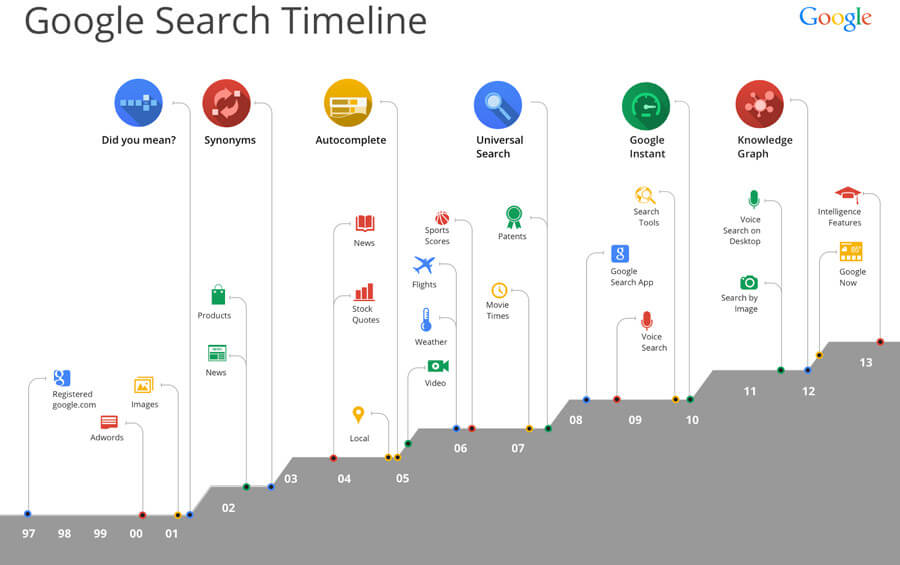Google never stops, and for its 15th year of operation it decided to give itself a nice gift: Hummingbird. Big G. planned to create a brand new algorithm, replacing the current Caffeine 2010, to strengthen the relationship between the user and the search engine.
The main feature of Hummingbird is to perform more targeted searches and reorganize/re-interpret the stored information to provide increasingly relevant results. With this new system, Google will be able to analyze users’ queries in a syntactically different way, extracting not only the most relevant words but the various correlations between them, based on the search performed.
What will be the precise activities of Hummingbird?
Through the previous algorithm, Google detected keyword interaction in its index pages, returning keyword-driven results and creating a list, based on the amount of correlations it could find. With Hummungbird, on the other hand, it introduces “Conversational search” imprinted on the interpretation of complete sentences, marking the transition from keyword-driven to answer-driven. What does this mean? Specifically, Google wanted to pay more attention to each individual word in the query, making sure that the entire sentence is understood and not just a few words. Its goal is to highlight pages related to the meaning in toto, asking a precise question (answer-driven) rather than pages responding only to certain terms (keyword-driven). In practice given the capabilities of the new algorithm, in our searches we will be able to choose to use precise keywords (e.g., “Logic analysis: how to do it right”) or better, complex and structured keywords (e.g., “How to do logic analysis correctly”). Let’s see an example of how the new algorithm might work:
- Research setting. “Where can I buy an iPhone 5 near my home?”
- Research. The old system would focus its search only on words such as buy and iPhone 5; Hummingbird, on the other hand, can better understand the actual location of your home and store by analyzing shared information on the web related to your profile, paying attention to the match between queries.
- Association and Outcome. At this point, the new engine probes the network by tracking down relationships with our search query and generates the SERP; in this specific case, all the stores selling iPhone5 in a particular area near my home.
But what about the old engine?
Many people wonder why this change was made, but the answer is almost a given. In fact, in light of the spread of voice searches through increasingly innovative devices, it was necessary to make a change of course and create an algorithm capable of intuiting increasingly complex queries.
However, one cannot really speak of a before and an after, an old and a new, because everything that has been updated over the years will not be totally deleted but integrated with the new Ranking Factors. In short, Panda, Penguin and the other updates are not dead. Hummingbird represents,therefore, a step toward individual search optimization without detracting from previous algorithms as Google’s indexing criteria and focus on quality remain unchanged. Although Hummingbird has only been made official for a few days, its engine has been pulsing now for 1 month and is improving our searches without any criticism with a quite noticeable increase that is evident in the recent Google Timeline.
At the level of SEO consulting this will surely involve reflection for industry insiders, with the hope of leading them toward a more “human” on-site optimization choice and less tied to the use of individual keywords combined. By now it is certain that Google rewards quality content but still remained the bad habit or compulsion to use TITLE and H1 shamelessly oriented to ranking on specific keywords. Hummingbird in addition to evolving the understanding of queries surely wants to remedy the lack of ineffective “titles” and often not up to the content, further trying to redefine the approach to a quality SEO and not made of only rules.
We just have to hope and trust in the tactical choice of the name of Hummingbird itself that in Italian, as well as in nature, translates with the speed and precision of the hummingbird. Something must mean something, no?
